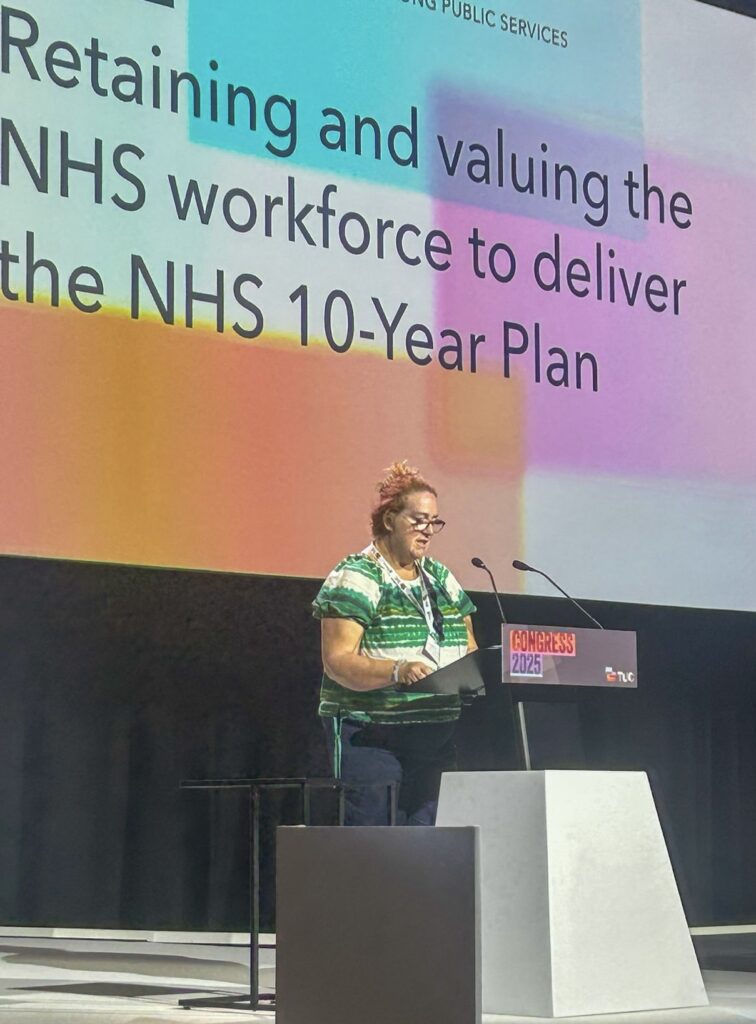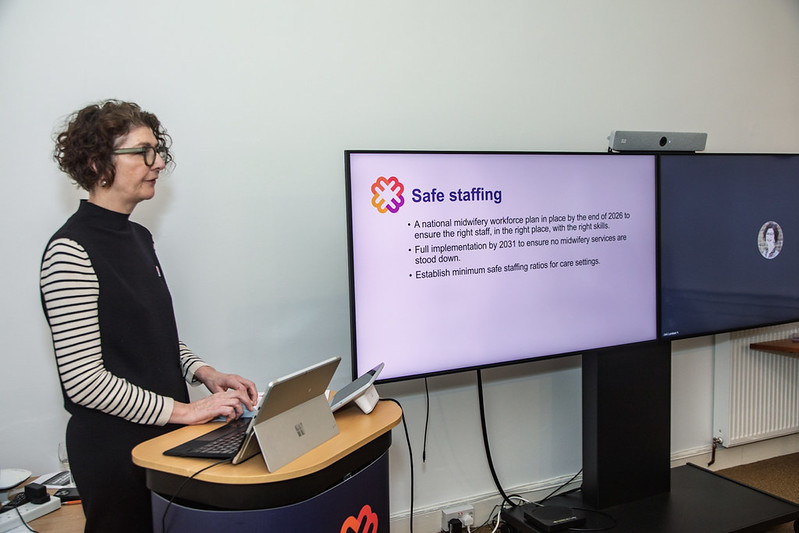The Royal College of Midwives (RCM) has used one of its motions at the 2025 TUC Congress to shine a light on the ongoing challenges facing student and newly-qualified midwives.
Financial hardship while studying midwifery, the accrual of significant debt, juggling childcare with clinal placement and the uncertainty of not finding full-time employment upon graduation are among the key challenges facing its members, says the RCM.
Moving the RCM’s motion, workplace representative Sue Chittick highlighted the RCM’s calls for the forgiveness of maintenance loans after three years of service in the NHS, specific to the country in which they qualified.
Sue also spoke about the need to nurture and support future midwives so the NHS can retain them and ensure UK maternity services are fit to deliver the best possible midwifery care.
Addressing Congress, Sue said:
“I would like to focus on the next generation of staff, students and newly-qualified midwives. They need to be encouraged, nurtured and supported through their training and in their early career years so they stay in midwifery and ensure we can close the understaffing gap that sometimes means not every woman and her baby is getting the care the need and deserve from our maternity services.
“Student midwives need financial support; we know from RCM surveys that almost nine out of 10 students in England often or always worry about the amount of debt that they are in. This isn’t right. Almost half of midwifery students have to take on part-time work on top of their full-time placements, some having to work up to 70 hours a week which negatively affects their studies. In some cases, this means students are left with no other option but to drop out. The Government claims that midwifery training places are rising, but what they don’t tell you is that applications for these places is falling and the number of students leaving their course is rising.”
The RCM’s 2024 ‘State of UK midwifery student finance report’ called on the Government in England to scrap tuition fees for midwifery students and included other recommendations for governments in Wales, Northern Ireland and Scotland such as:
- Financial support that increases by inflation.
- Maintenance loans for student midwives that would be forgiven after three years of service in the NHS, specific to the country in which they studied.
- Preserved benefit entitlements, so that the vocational burden is not borne by the whole family.
- Prompt reimbursement for the cost of student placements, which can involve high travel costs.
Fiona Gibb, Director of Midwifery at the RCM, said:
“Every midwifery student is feeling the pinch, no matter where they are based. Nearly three-quarters of students in Scotland have taken on additional debt, while the threshold for grants and allowances for those studying in Northern Ireland are low, meaning those with partners in work may not be able to access them at all. In England, though, we see the highest burden, as it is the only one of the four UK nations where midwifery students must pay tuition fees. Starting your career, which you’re extremely likely to spend entirely in the NHS, with nearly £30,000 of debt is an incredible burden to bear, particularly when there are so many other financial hurdles these students have to overcome. That’s why we’re calling on the Westminster Government to level the playing field with the other nations and scrap tuition fees for midwifery students in England.”
On newly-qualified midwives, the RCM recently welcomed the recent Government announcement regarding a ‘graduate jobs guarantee’. However, it has warned that it is a temporary patch on a broken system. Rather than funding new posts, this scheme relies on using vacancies for maternity support workers (MSWs) and providing ‘top up’ funding to Trusts. The RCM has sought reassurances from NHS England that those MSW posts will be reopened as newly qualified midwives take up other vacancies.
TUC Congress continues until Wednesday 10 September and with a strong RCM delegation in attendance including, RCM Activists from across the UK and RCM Board and staff members. Other RCM motions highlighted the maternity inequalities faced by global majority women and their babies. The RCM will also second a motion from the Royal College of Podiatrists which is calling for paid worktime for all nursing parents.
More details on the 157th Annual TUC Congress can be found here.


